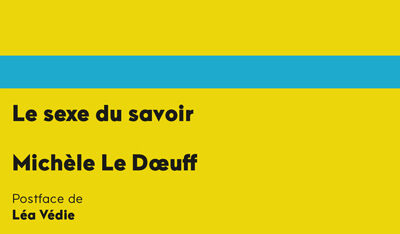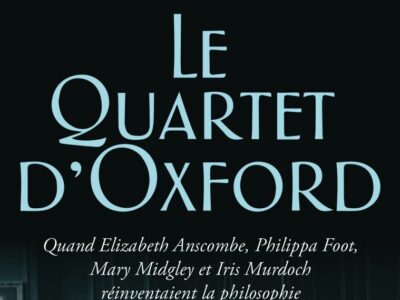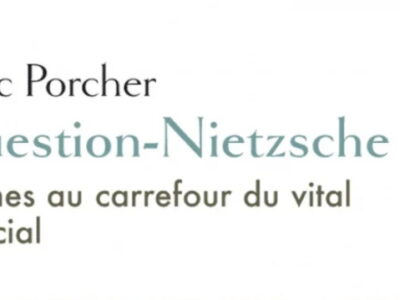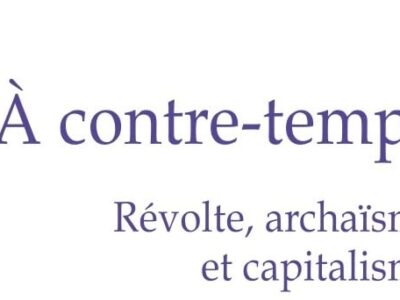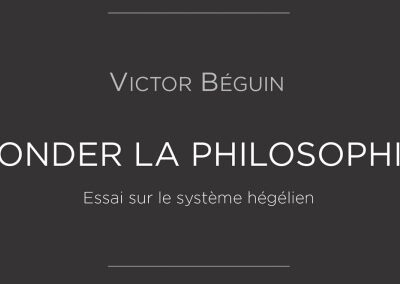Of the hidden cost of freedom
Of the hidden cost of freedom
Advocacy for a philosophy of renouncement
Hubert Etienne, Sorbonne Université.
 “Malo periculosam libertatem quam quietum servitium” urged Rousseau in the Social Contract[1], which translates to “tumultuous liberty is preferable to quiet servitude”. The purpose of this paper is to demonstrate the opposite. Liberty is an old notion, which has become a first-order preoccupation with the European Enlightenment, and an obsession from the times of the Revolution. The concept thus experienced several semantic shifts over the centuries, an example of which is presented by Benjamin Constant[2], distinguishing the liberty of the Ancients from that of the Moderns. More recently, the debate around liberty found another structural opposition with Isaiah Berlin’s distinction between positive and negative liberty[3]. Despite its highly ambiguous and controversial nature, liberty is nevertheless present in all the founding texts of modern liberal democracies, and even erected by the Declaration of the Rights of Man and of the Citizen as an inherent and inalienable attribute of all human beings. It therefore seems that a large consensus has established liberty as one of the most important modern political concepts, although no one understands it in the same way. This paradoxical situation prompts us to wonder what the reason for liberty would be to be so unanimously accepted as a fundamental good, deserving to expose oneself to all perils to protect it as if it were an obvious universal end, whereas it seems so difficult to agree on a clear and univocal definition of it. By presenting what we consider to be the main questions and arguments structuring the debate around the modern conception of liberty, we expose here a rational view of liberty as an ascetic effort of discernment towards happiness. Starting from Berlin’s structural distinction, we expose and challenge a formal view of political liberty, as liberty granted by others. Then, we consider practical objections to formal liberty, leading to a non-satisfying conception of effective liberty. Finally, we conclude on the nature of liberty, not as a state of things, but as a state of mind, implying a daily effort of discernment.
“Malo periculosam libertatem quam quietum servitium” urged Rousseau in the Social Contract[1], which translates to “tumultuous liberty is preferable to quiet servitude”. The purpose of this paper is to demonstrate the opposite. Liberty is an old notion, which has become a first-order preoccupation with the European Enlightenment, and an obsession from the times of the Revolution. The concept thus experienced several semantic shifts over the centuries, an example of which is presented by Benjamin Constant[2], distinguishing the liberty of the Ancients from that of the Moderns. More recently, the debate around liberty found another structural opposition with Isaiah Berlin’s distinction between positive and negative liberty[3]. Despite its highly ambiguous and controversial nature, liberty is nevertheless present in all the founding texts of modern liberal democracies, and even erected by the Declaration of the Rights of Man and of the Citizen as an inherent and inalienable attribute of all human beings. It therefore seems that a large consensus has established liberty as one of the most important modern political concepts, although no one understands it in the same way. This paradoxical situation prompts us to wonder what the reason for liberty would be to be so unanimously accepted as a fundamental good, deserving to expose oneself to all perils to protect it as if it were an obvious universal end, whereas it seems so difficult to agree on a clear and univocal definition of it. By presenting what we consider to be the main questions and arguments structuring the debate around the modern conception of liberty, we expose here a rational view of liberty as an ascetic effort of discernment towards happiness. Starting from Berlin’s structural distinction, we expose and challenge a formal view of political liberty, as liberty granted by others. Then, we consider practical objections to formal liberty, leading to a non-satisfying conception of effective liberty. Finally, we conclude on the nature of liberty, not as a state of things, but as a state of mind, implying a daily effort of discernment.
The limits of Berlin’s dialectic of political liberty
Berlin defines the “negative sense of liberty” as “the area within which the subject – a person or group of persons – is or should be left to do or be what he is able to do or be, without interference by other persons”[4]. This is a spatial apophatic definition of liberty, leading to a conception of individuals as beings evolving within a defined space or framework, whose borders are made of others’ interferences. He adds that any denial of liberty should be called “oppression”, but that I can only be considered as coerced if “I believe to be played by other human beings, with or without the intention of doing so, in frustrating my wishes”[5]. Negative liberty is to be understood as a relative liberty, being defined by the others (we are free to do what they let us do), and this is what really makes it a political liberty. Moreover, if others are to define our area of liberty, we also participate in the definition of theirs – being to others, what they are to us –, establishing a sort of rational Nash equilibrium defining the extent of our liberty as the body of all deeds others enjoy being allowed to perform more than they suffer from our reciprocal permission to perform them. This definition is quite valuable, as it is practical and allows a clear answer to the question “Am I free to do this or that?”, as given by the experience. The negative aspect of this practical nature is that it is not possible to have an a priori knowledge of our liberty, because of the plurality of characters amongst the human population – except a very narrow body of obvious statements, such as “do not murder people”. It is for instance not uncommon to witness a conflict between two flatmates where one feels comfortable sharing the fridge and indifferently eats what is inside, yet the second prefers to renounce the right to eat the food which is not his or her own, with the assume assurance that the other flatmate will do the same. The consequence of this lack of direct a priori knowledge regarding the scope of our liberty is that we can only learn about it through multiples experiences.
Two conclusions arise: firstly, considering this definition of liberty from the modality of possibility, it follows that we cannot know the scope of our liberty before experiencing it, limiting our access to practical knowledge of liberty. In addition, being free implies a constant challenge of our area of liberty to know exactly where we stand, which ultimately leads to a higher level of frustration, as we suffer not only from the interferences experienced when performing that which we desire to perform, but also from those interferences experienced when performing that which we do not especially desire, with no other intention than knowing if it is part of our area of liberty – e.g. we do not want to buy cigarettes, but we would like to know if we would be able to do it, in case one day we change our mind[6]. Second, considering the definition of negative liberty from the modality of choice, we realise that it is by nature not action-guiding. The choice of what to do within our area of free will is left to individuals without any normativity. People are consequently responsible for their choices, as it is assumed that they have a natural capacity to know what is good for them, and to make good use of their liberty. The question of choice concerns both decisions for oneself (we may not be aware of the dangers of smoking, despite being allowed to buy cigarettes), as well as decisions to define the limits of others’ liberty (ignoring the dangers of passive smoking, we may not see the danger of allowing others to smoke in public places, even if we do not smoke ourselves). Therefore, it results that negative liberty itself is not necessarily desirable by people, as it may lead them to experience systematic coercion or to make wrong decisions. In modern democracies, these two limits tend to be overcome on the one hand by the law, providing us with a clear definition of our area of liberty as citizens, and on the other hand by elected representatives, being both legitimate and theoretically more capable than us to make the best decisions regarding the choices we are concerned by, but cannot make ourselves.
The arrival of a third party, to whom the source of our liberty is transferred, prompts us to Berlin’s second concept, i.e. the positive liberty defined as the answer to the question “What, or who, is the source of control or interference that can determine someone to do, or be, this rather than that?”[7]. It is firstly important to concede that positive liberty is a practical necessity within modern liberal democracies, in order to allow citizens to still consider themselves as free, even when they are not the primary source of the laws they have to abide to. They chose the person they trust to make these decisions on their behalf, assuming it is in their best interest. This concept of liberty definitely differs from the previous one, however we cannot say as to whether it means more or less liberty for individuals. Indeed, positive liberty could a priori be considered as a lower level of negative liberty, as the choice does not directly come from the individual, and that even if his or her representative is trustworthy and genuinely working for his or her best interest, he or she is representing a number of different individuals trying to determine a median among the various individual interests. On the other side, it could also be argued that positive liberty ends up providing people with a higher level of negative liberty, as they are supposed to be more educated and familiar with political debates, so they may be more capable of understanding someone’s best interest and able to plead his or her case more efficiently in order to produce in fine the best results for the individual. For instance, someone may think that his or her best interest is to visit a dangerous country, whereas the representative is more aware of the dangers of such expedition, and prevents any travel to this destination. The final decision would then be in the best interest of the individual, even if he or she does not see it – as he or she would have been exposed to high risks of being taken hostage for years. In this case the representative knows more about the country than the individual, and he or she is able to evaluate the impact of the decision on both the individual’s current and future interest. Then, if Berlin’s system, which combines both negative and positive liberty exhibits evident merits – offering an efficient tool to determine whether someone is acting freely or suffering coercion in a specific situation – it can however be opposed by two main objections. First, it can be argued that this is too much of a formal universal theory of liberty, missing interferences of other kinds ultimately conducing to inequalities between citizens. Second, it is impossible to arbitrate whether liberty is desirable or not on the sole basis of these two definitions. In fact, it does not help those who put their liberty to its best use (whether in identifying which goal is good for them, or which means is the best to achieve this goal), nor does it help in judging who is the most reliable person to trust as a representative. In addition, we notice that even if we were capable of choosing the right person, and that he or she was both very competent to make the best decisions and genuinely focused on our interests, there is always the possibility that, because he or she is different from us, perhaps not from the same social class, he or she would thus end up making wrong decisions when trying to help us, just because we do not think the same way, having different conceptions of our best interest. This is actually a classic argument against ideal political paternalism, which Berlin’s theory fails to deflect.
The intrinsic incompatibility between universal liberty and modern democracies
Let’s spend some more time on the first criticism, which is that Berlin’s two concepts only capture a sort of theoretical formal liberty, whereas a number of external criteria do affect the use someone may have of his or her negative liberty, leading to a significant reduction of the area of one’s actual liberty. This idea is notably expressed by Bernard Williams, claiming that “there is a distinction between a man’s rights […] and his power to secure those rights”[8]. In fact, when Berlin talks about “interferences”, it is obvious that the interference only occurs if the non-authorised action is noticed, and then only if the interference’s force opposed to him or her is strong enough to stop the individual. This issue is also discussed by Phillip Pettit, who distinguishes simple “interferences” from “arbitrary interferences”[9]. However, we do not think this distinction adds much to Berlin’s dual conception of political liberty, inasmuch as arbitrary interferences – as long as they are practical interferences of the same kind as what applies to Berlin’s system – are supposed to be illegal. This can of course not be the case, but it would then lead to issues which are not within the scope of this paper. In contrast, other sorts of arbitrary interferences can be considered, such as influences we are subjected to because of our belonging to certain groups of people (by birth for instance), conducing the superposition of a second area of liberty (our formal liberty being then defined by the zone encompassing these two superposed areas), which are not ruled by the government. An example of these, proceeding from a social category, is that divorce or abortion is not well accepted by certain social groups, despite its lawfulness. Such social pressures could thus prevent someone from divorcing because of the fear of rejection. These types of interference can be named “interferences of anticipation”. It is not properly speaking an interference, as it would not abide to Berlin’s conception of it, but although it does not absolutely prevent someone from realising his or her goal, it de facto constitutes a mental obstacle for the individual, as he or she necessarily anticipates the punishment linked to the action. Another sort of interference between intention and the actual possibility of accomplishing a legally authorised action is a lack of money, as exposed by Gerald Cohen[10]. His position consists in the reversal of Berlin’s view, inasmuch as Cohen conceptualises a completely different relationship between humans and their environment. Indeed, he does not understand the individual to be in an environment of infinite possibilities, where here and there borders have been voluntarily erected by others to limit the extent of his or her possibilities. On the contrary, Cohen sees humans in a situation of inertia, occupying one position on the map and surrounded on every side by interferences. In other words, the individual is not offered a limited space of liberty but exists in an environment where every single move is conditioned by the possibility to waive interferences. There is no more political or social interference, nor formal or effective liberty[11]: liberty is only effective liberty, which corresponds to the body of goals someone can achieve, according to the number of interactions he or she can afford to waive. Cohen expresses a severe criticism against Berlin’s model, arguing that in modern liberal societies, “money structures freedom” and its distribution is “a distribution of rights of interference”[12]. As a result, he not only says that political liberty is not sufficient in providing people with equal effective liberty, (understanding the difference of access to liberty according to the difference of wealth), but even claims that the entire political system is based on political liberty, and that this liberty is defined in such a way that some people will receive it (money), whereas others will not. Then, the means to make use of formal liberty are not considered anymore as an externality of the liberty model, but a constitutive part of it; if someone cannot benefit from the rights he or she was given, thus he or she was not given any.
Another point about political liberty as effective liberty concerns the question of pretended individual indifference. Whereas the previous statements treated the difference between the area of formal liberty someone is allowed and willing to experience, and the area of effective liberty he or she is practically capable of experiencing, we would like to discuss now the question of liberty we possess but have no desire to use; let’s call it “useless liberty”. Three different cases then have to be distinguished regarding useless liberty:
(1) liberty we are indifferent to and we do not expect our mind to change about it (e.g. the right to hunt if we have no specific interest in it, or hatred against it);
(2) liberty we are currently indifferent to but may expect a future change in our mind (e.g. the right to adopt children if we currently express no desire to have any, but may reconsider it later);
(3) liberty we would like to use, but we do not have the necessary means to do so.
The third scenario is largely discussed by Cohen, who recognises the classic argument of Libertarians, calling it “liberty without freedom” (referring to Jonathan Wolff’s terminology, basically defining liberty as “permissibility” and freedom as “real liberty” or capacity to exercise liberty): “I may value my freedomless liberty even if I cannot at present use it, because I may come to be able to use it”[13]. In Cohen’s opinion, this promise of potential additional freedom is a lure; it is used by those who possess the capital to acquire more liberty for everyone, but only more freedom for themselves (being the only ones able to use it), whereas poor people only gain a promise of more freedom if they one day are richer, which is a very low probability considering social conditioning[14].
Therefore, alongside Cohen we can say that freedomless liberty equates to no liberty, and liberty with the potential future possibility of freedom is not liberty either. Following the same reasoning, we would like to assert that if liberty we cannot use is not liberty, then liberty we do not care about (with possibility of change or not: case 1 and 2) is not liberty either. This conclusion is supported by two arguments: first, that if we consider liberty as a subjective feeling (just like Cohen), then we have to agree that someone would not feel freer if he or she is now allowed to do something he or she anyway does not want to do (e.g. legalisation of hunting from the point of view of a non-hunter), and second because the attribution of more liberty is not a non-losing game. In fact, many people would tend to think that granting a new liberty that only benefits a specific population, without affecting the others, is a “win/no loss game”, leaving no room to resist it. This could be the case if the government was considering suppressing the obligation to acquire a specific licence to drive an all-terrain vehicle (ATV). The supporters of this reform would argue that this policy benefits ATV drivers (granting them more freedom) without being detrimental to the others. We disagree with this argument, which consists in saying that the issue only concerns ATV drivers. As non-ATV drivers, even if we are not directly impacted by the new policy, we may nevertheless believe that it will result more insecurity on the roads, due to more unexperienced drivers, what will in fine be detrimental to our safety. Therefore, as much as it is legitimate for us to claim damages when we suffer from someone’s illegal act, it is also legitimate for us to have our say when it comes to prevention of a policy that we foresee as being harmful to us, and even to reduce our effective liberty (i.e. freedom). Indeed, even if we are still just as free to use the roads, we may restrain our use of it, being afraid of dangerous drivers. Moreover, even in the situation when the discussed new liberty is not something we may be liable to suffer from in any way, the sole fact that some people are granted more freedom without an increase to our own freedom reveals a lack of liberty. Politics is about priorities and each new granted liberty proceeds from a political choice, which necessarily implies a sacrifice (e.g. debate time that could have been used to discuss a liberty we would have benefitted from, or of public spending that could also have been mobilised for something we would have enjoyed). Let’s call this capacity to have one’s interests to be considered first within the political process of right’s attribution “dynamic liberty”[15]. We can now summarise the different types of liberty mentioned so far as follow:
Formal liberty: if A and B both want something but only B has the liberty to do it, then B is freer than A;
Effective liberty: if A and B both want something and have the liberty to do it, but only B has the freedom to do it, then B is freer than A;
Dynamic liberty: if A and B both want more liberty, but only B’s claims are considered by the legislative assembly, then B is freer than A.
Subsequently, it is wrong to say that someone is not concerned about this or that liberty, because it seems to have no impact on him or her: everyone is highly interested in every question of political liberty. Therefore, political liberty is not only insufficient to efficiently describe the environment of opportunities an individual may consider when making behavioural choices, but it is also biased (choosing to consider some claims instead of others) and so, it can neither be an end to be sought, nor a principle guiding political decisions. It results that a fair increase in liberty cannot be anything else than a measure granting more liberty to all the members of the social group, a liberty they all desire with the same intensity, that they are all equally able to use, and which will ultimately be equally appreciated by each individual, as a subjective being evaluating his or her level of liberty. Such a conception of liberty is then impossible to develop within a group. As formulated by Berlin “everything is what it is: liberty is liberty, not equality or fairness or justice”[16]. When a political decision is based on a libertarian rationale, it is necessarily detrimental to some people’s effective liberty; when it is based on an egalitarian reasoning, it necessarily frustrates some people’s formal liberty, and the only practical necessity to arbitrate between libertarian and egalitarian logics reveals a necessary frustration to some people’s dynamic liberty. This is why liberty cannot be said to be univocally and universally desirable for itself by everyone, within the context of modern democracies. This incompatibility between liberty and modern democracies does not ultimately disqualify democracies, being incapable of preserving people’s liberty, but leans on this truth to disqualify liberty, as a relevant principle for democracies pretending to target happiness for their people.
Considering the possibility of extending our area of liberty (negative liberty), together with the possibility of having a number of candidates who represent our interests (positive liberty), it seems that liberty is not an “all-or-nothing matter” as Pettit says[17], but rather a scalable concept that comes with various degrees: we are not free or unfree, but more or less free. Furthermore, this scalable concept is of a subjective nature, as argued by Cohen, because when someone feels less free than he or she used to be, “the feeling [he or she] expresses represents a correct judgement”[18]. Each person then appreciates his or her degree of freedom by comparing its current level to former’s, but also to other people’s. From then, it seems that Easterlin’s paradox about happiness[19] could be applied to freedom. Easterlin’s finding was that people do not become happier with the increase of GBP, because they evaluate their happiness relative to their situation by comparing it to their neighbours’. Consequently, whatever the absolute level of wealth is, an increase in happiness can only be produced by a bigger gap between someone’s situation and the situation of other people within his or her environment, so this person feels better-off. Thus, even in the utopic scenario, in which absolute political liberty were to be homogeneously increased for all the people of a society, it would have no impact on the satisfaction they receive from it, as the relative situation of each individual compared to others will have experienced no change. In addition, even in such an ideal situation, within which we would be considered as absolutely free (no apparent interference with any of our desires, implying no other individual), we would actually not be able to enjoy this freedom, as we could not be free alone, necessarily needing someone else to feel freer than him or her. Ultimately, even if we were enjoying this impossible absolute liberty, we observe that freedom would still be incapable of directing us towards the right choices. Thus, we are not sure whether it is more desirable for us to have many choices and no clue of which one would be in our best advantage, or less choices selected by someone wise in order to reduce the risk that we make wrong decisions. Independently from the consequences of this choice, freedom is about emotions, and if we have a choice, we also have the responsibility inherent to this choice, so making the wrong decision may lead us to face harsh consequences, but it will more certainly conduce us to feel remorse, which can be avoided if we do not take on the responsibility for this choice[20]. Another point is that, in continuing to consider this so-called ideal of absolute freedom, we would not be certain of the origin of our desires, as they could either derive from our free will or result from someone else’s manipulations[21]. Then, even if we were capable of choosing the way we want to achieve our goal, we would neither be sure about which would be the best way to reach it, nor if this goal would actually be what we really want for ourselves, or if we would be abused by someone. This is a point Charles Taylor is sensitive to, as he advocates the difficulty of distinguishing what we really want from what we think we want (first and second-order desires), concluding that freedom should come from a “capacity for self-clairvoyance”[22]. However, the various types of freedom exposed supra do not provide such help. For the reasons extrapolated upon above, it becomes evident that when someone claims “I am free”, this means nothing. Having established that “being free” refers to “being free to do something”, which is a subjective concept characterised by our ability to defuse certain types of interferences to perform a specific act. This person should rather say “I think I am effectively free to walk in the street without being legitimately exposed to the danger of being arrested by the public force”. In the end, the word freedom means nothing if it is not accompanied by many precisions to give it the sense we want to express, so “to be free” can always be replaced by “can”: “I think I can effectively walk in the street without being legitimately exposed to the danger of being arrested by the public force”. In light of the proven inconsistencies of the category of freedom, it is time to think about a way to replace it.
Ascetic freedom to arbitrate between weighted desires
Freedom is not a “first-order desire”, to speak like Taylor. It is not sought for itself, but because it represents a capacity to achieve one’s goals: ceteris paribus, the freer we are, the abler we are to reach our objectives – the fulfilment of these objectives being the source of our happiness. Thus, if the final goal of freedom is supposed to be happiness, we do not think that freedom is the best way to achieve it. Besides the variety of types of freedom that have been discussed so far, we think the most capable to lead us to happiness is a form of asceticism, somewhat comparable to what Berlin calls the “retreat to the inner citadel”. It is close to Epictetus’s philosophy, urging people to develop a certain capacity of discernment to distinguish what falls within their power from what does not.
Indeed, we should expect to face much less disappointment and sadness if we wonder what we want to do, firstly considering what we can do (finding our goals within our area of effective freedom), rather than deciding first what we want to do, and then wonder if it is something we are allowed and able to reach. This alternative view of freedom we are presenting here is not an instrumental freedom, as the power to reach any of the fanciful goals our imaginations could invent, but to take control over our minds and our arbitrary desires. It is not a natural freedom that should be taken for granted, said to be inherent to our being by nature, but an exigent freedom we can only obtain at the price of an intense daily effort. Freedom should thus not be understood as the power to achieve one’s goals, but the capacity to define one’s own desires[23]. Nonetheless and in contrast with the retreat to the inner citadel as it is presented (and criticised) by Berlin, this asceticism we prone is not a renunciation of social interactions to preserve ourselves from external influences, but only a renunciation to liberty, conceived as the characteristic lure of Modernity that has been erected as the end of human’s life and the touchstone of human’s dignity, whereas it only reflects humans’ hubris, always tempted to target out of reach desires to demonstrate their power over God, nature and society.
To conclude, challenging the belief amongst liberal modern states that freedom, as one of the foundations of democracies, has to be sought for itself by political associations – which have no other end than its preservation and development – we hope to have demonstrated the incoherence of this statement. We showed that freedom is never considered as an end in itself, but always as a means to another end, which is happiness. The concept exhibits a plurality of interpretations, all characterised by specific modalities to capture the dialectic between the goals and means to be reached, without ever helping an individual to make the right choices. Because it is fundamentally subjective and finds its expression in a feeling, it cannot be used with coherence as a principle of governance to rule a people, according to an ideal of equality (as equality of liberties). Indeed, there are no political measure able to equally increase the impression of freedom of all individuals, and every measure which does not increase the freedom of someone necessarily decreases it, compared to others (dynamic liberty). Ultimately, we understand from the very nature of the feeling of freedom that the only possible development of political freedom is anti-democratic, as it only benefits some, while being detrimental to others. If we really want to keep freedom as the mean to achieve our goals and to drive us towards happiness, the rational solution would be to reverse the dialectic between the source of the desire and the way to achieve it, differentiating what we can have an impact on from what we do not, selecting our desires from a body of goals we know are possible to reach. Indeed, if goals are only contingent occasions to experience happiness, then it is absurd to endure pain for not being successful in achieving one of them, whose only purpose was to give us a reason to be happy. However, as Berlin observes, such an asceticism leads people to exit society and to live reclusively on their own. It results that political freedom as it is conceived is not able to coax all citizens to happiness but can only in the best-case help some of them by being detrimental to others. If our goal is truly happiness (what would deserve to be further discussed somewhere else), we should either engage with an exigent form of freedom which cannot be political – as it leads the individual to exit society –, or to accept giving up our political freedom in order to embrace happiness. This radical paternalist choice implies abandoning to others our power and responsibility to make decisions for ourselves. In our opinion, the only remaining form of political freedom is the freedom to accept the limits of our power, and seek to fulfil attainable desires to maximise our chances to experience happiness, rather than to thrive for more freedom in order to target more distant goals.
[1] Jean-Jacques Rousseau, Du contrat social ou Principes du droit politique, Amsterdam, Marc Michel Rey, 1762, L. III, chap. IV, p. 151.
[2] Benjamin Constant [1819], “De la Liberté des Anciens comparée à celle des Modernes”, in Marcel Gauchet (dir.), Ecrits politiques, Paris, Gallimard, 1997.
[3] Isaiah Berlin [1958], “Two Concepts of Liberty”, in Four Essays on Liberty, Oxford, Oxford University Press, 1969, pp. 118-172.
[4] Ibidem, p. 122.
[5] Ibidem, p. 123.
[6] Notice that negative liberty is not reducible to what is permitted by the law. In fact, there are some illegal actions we can perform without suffering other’s interferences (e.g. if it is tolerated or if we do not get caught), and other actions for which we may experience such interferences, despite the fact they are legally authorised.
[7] Ibid, p. 133.
[8] Bernard Williams [1973], “The Idea of Equality”, in Problems of the Self: Philosophical papers 1956-1972, Cambridge, Cambridge University Press, 2009, p. 241.
[9] Phillip Pettit [1977], “The Republican ideal of freedom”, in David Miller (ed.), The Liberty Reader, Edinburgh, Edinburgh University Press, 2006, p. 225.
[10] Gerald A. Cohen, “Freedom and Money”, in Michael Otsuka (ed.), On the Currency of Egalitarian Justice and Other Essays in Political Philosophy, Princeton, Princeton University Press, 2011.
[11] The distinction between « liberty » (common formal liberty) and the « worth of liberty » (individual effective liberty) is not an invention of Cohen, as it has been discussed by others, notably John Rawls ([1971], A Theory of Justice. Revised edition, Cambridge (MA), Harvard University Press, 1999, p. 204).
[12] Cohen, op. cit., p. 176.
[13] Ibidem, p. 191. Cohen is here referring to the thesis Jonathan Wolff holds in “Freedom, Liberty, and Property”, Critical Review, vol. 11, 1997, pp. 345-357. The rest of the article uses this terminology.
[14] There is a very large literature concerning social conditioning and social reproduction; one of the most iconic theoretician in France was Pierre Bourdieu (see Pierre Bourdieu & Jean-Clause Passeron, Les Héritiers. Les étudiants et la culture, Paris, Les éditions de Minuit, 1964).
[15] The point here does not embrace the radical view that every single claim should be considered with the same degree of attention, but only acknowledges the fact that some groups of people succeed to have their interests prioritised over others’ in a recurring way. When this group is called the majority, it leads to an absolute lack of dynamic liberty for the minority; this situation is known as the “tyranny of majority” (John Stuart Mill, On Liberty, London, John W. Parker and son, 1859).
[16] Berlin, op. cit., p. 125.
[17] Pettit, op. cit., p. 232.
[18] Cohen, op. cit., p. 167.
[19] Richard A. Easterlin, “Does Economic Growth Improve the Human Lot?”, in Paul David & Melvin W. Reder (eds.), Nations and Households in Economic Growth: Essays in Honor of Moses Abramovitz, New York, Academic Press, 1974.
[20] An objection would be that some people would not experience remorse from the fact that their action failed to reach its end, but on the contrary feel satisfied because this failure is only due to their free action, not to someone else’ decision. Nevertheless, such argument presupposes that freedom is to be sought for itself, being autonomously able to provide happiness, and we just demonstrated the opposite claim. When someone enjoys feeling freer than others, what he or she actually enjoys is feeling better-of: it is all about social comparison, not freedom itself. Thus, freedom always remains a mean, not an end to be desired for itself, and in this case, freedom is no more than the instrumental expression of a desire of social distinction, whose confirmation leads to happiness.
[21] The issue of manipulation is notably discussed by John Christman in “Liberalism and Individual Positive Freedom”, in Ethics, vol. 101, n° 2, 1991, pp. 343-359. According to Christman, positive liberty concerns the way people form their desires (autonomously or not), regardless the content of these desires. This is a view that appears as highly unsatisfactory, inasmuch as people do not enjoy the apparent autonomy of their will, but only the fulfilment of their desires, whatever the “genuine source” of these desires could be.
[22] Charles Taylor, “What’s wrong with negative liberty”, in Philosophical Papers, Cambridge, Cambridge University Press, 1985, p 229.
[23] This view goes further Taylors’s “capacity for self-clairvoyance”. It overpasses the distinction between first and second-order desires to analyse desires together with their probability to be fulfilled, according to the individual’s own capacities.


